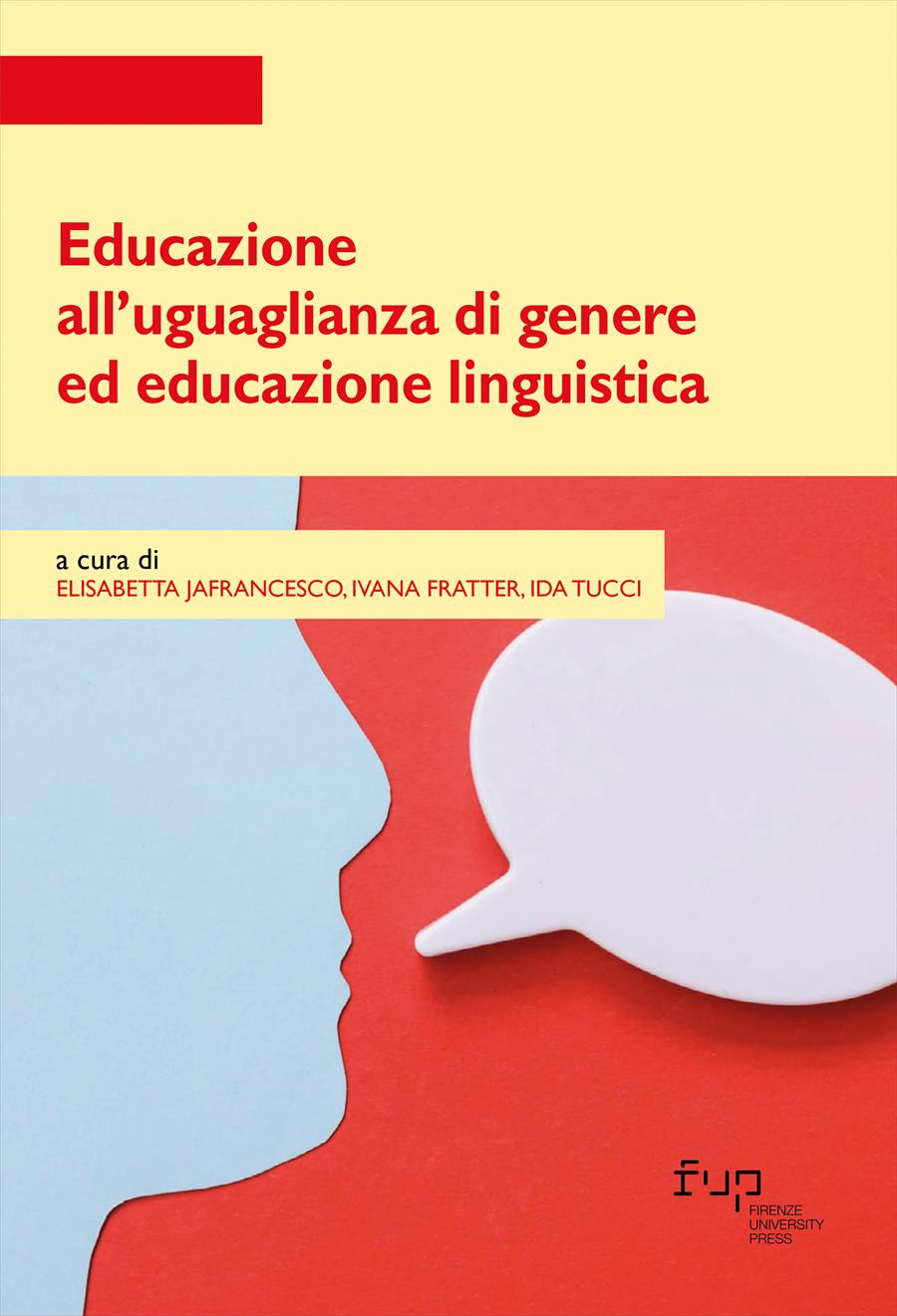- Educazione all’uguaglianza di genere ed educazione linguistica
- Edited by Elisabetta Jafrancesco, Ivana Fratter, Ida Tucci
Nel nome del neutro. Problemi e soluzioni
- Massimo Arcangeli
- © 2024 Author(s) |
- CC BY 4.0
- DOI: 10.36253/979-12-215-0484-2.04
The only (non-divisive) way to address the representation of linguistic gender identity is to attempt – albeit not without difficulty – a negotiation between the protection of the common linguistic norm and accommodating the progressive proliferation of identities. This process must begin from a specific point, one for which no general consensus yet exists. There is no grammatical sacrilege in feminizing terms such as sindaco or ministro: in Italian, masculine nouns ending in -o typically take -a in their feminine forms, leaving no structural reason to reject sindaca or ministra. However, inclusive forms such as direttorə and pittorə, autorə and lettorə, rather than challenging their masculine equivalents, risk stalling progress. In classical Latin, the feminine form of pictor (pictrix) did not exist; a woman engaged in painting in ancient Rome had to resort to circumlocutions like pingendi artifex («an artist in the field of painting»). It took centuries to “institutionalize” many feminine forms of professional titles, and we are still far from granting them full social recognition. The current wave of advocacy for a neutral gender risks relegating to obscurity precisely those feminine forms (such as direttrice and pittrice, autrice and lettrice) that we must instead promote – and encourage others to promote – without hesitation.
- Keywords:
- Job titles,
- Linguistic norms,
- Feminization of language,
University of Cagliari, Italy - ORCID: 0000-0002-0319-9997
- Arcangeli, M. 2022a. La lingua scema. Contro lo schwa (e altri animali). Roma: Castelvecchi Editore.
- Arcangeli, M. 2022b. “Petizione contro lo schwa: «Basta a una grammatica dell’italiano intermittente».” Corriere della Sera, 12 febbraio, https://bit.ly/48LlPtw (https://www.corriere.it/) (ultimo accesso: 2.03.2024).
- Butler, J. 1990. Gender Trouble. Feminism and the Subversion of Identity. New York: Routlegde.
- Fausto-Sterling, A. 2000. Sexing the Body. Gender Politics and the Construction of Sexuality. New York: Basic Books.
- Halperin, D. M. 2012. How to Be Gay. Cambridge (MA): Harvard University Press.
- Murgia, M., Tagliaferri, C. 2021. Morgana. L’uomo ricco sono io. Milano: Mondadori.
- Tiburi, M. 2020. Il contrario della solitudine. Manifesto per un femminismo in comune. Firenze: Effequ (trad. it. a cura di E. Del Giudice).
Chapter Information
Chapter Title
Nel nome del neutro. Problemi e soluzioni
Authors
Massimo Arcangeli
Language
Italian
DOI
10.36253/979-12-215-0484-2.04
Peer Reviewed
Publication Year
2024
Copyright Information
© 2024 Author(s)
Content License
Metadata License
Bibliographic Information
Book Title
Educazione all’uguaglianza di genere ed educazione linguistica
Editors
Elisabetta Jafrancesco, Ivana Fratter, Ida Tucci
Peer Reviewed
Number of Pages
164
Publication Year
2024
Copyright Information
© 2024 Author(s)
Content License
Metadata License
Publisher Name
Firenze University Press
DOI
10.36253/979-12-215-0484-2
ISBN Print
979-12-215-0483-5
eISBN (pdf)
979-12-215-0484-2
eISBN (epub)
979-12-215-0485-9
Series Title
Strumenti per la didattica e la ricerca
Series ISSN
2704-6249
Series E-ISSN
2704-5870
